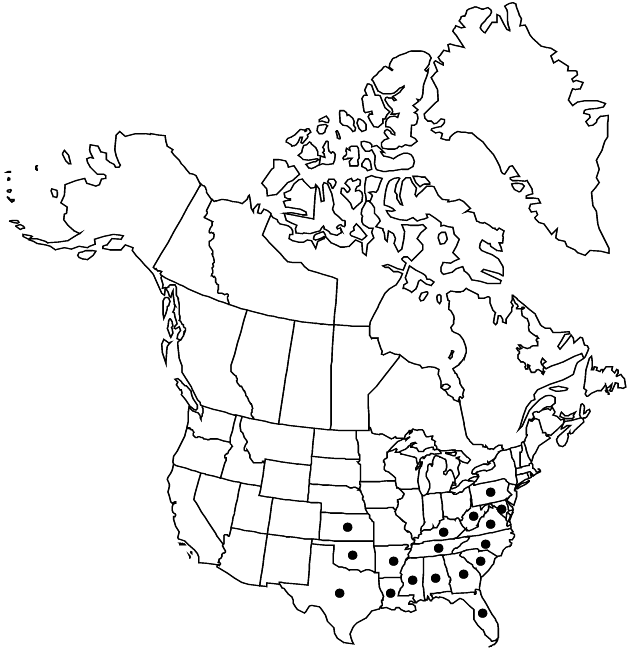Gamochaeta argyrinea
Sida 21: 718, figs. 1-4. 2004.
Annuals (winter annuals), 12–40 cm; usually fibrous-rooted, rarely taprooted. Stems decumbent-ascending, closely white-pannose (hairs usually individually evident, seldom forming clothlike induments). Leaves basal and cauline, basal present through flowering, blades oblanceolate to oblanceolate-oblong or oblanceolate-obovate, 1.5–5(–8) cm × 5–12(–18) mm (gradually smaller distally), faces bicolor, abaxial closely white-pannose, adaxial sparsely arachnose (evident at 10×). Heads initially in continuous, cylindric arrays 1.5–5 cm × 10–12 mm (pressed), later sometimes interrupted, 5–18 cm × 10–12 mm (pressed; producing axillary glomerules from proximal nodes). Involucres campanulate, 3–3.5 mm, bases sparsely arachnose. Phyllaries in 4–6 series, outer (tawny-transparent, never dark brown) ovate to ovate-lanceolate, lengths 1/3–4/5 inner, apices acute to acuminate, inner elliptic-oblong to oblong, laminae often purplish tinged (around stereome/lamina junction, otherwise hyaline and slightly brownish), apices truncate-rounded, apiculate (flexing slightly outward in fruit). Florets: bisexual 4–5(–6); all corollas purple- to yellow-brown distally. Cypselae (tan) 0.5–0.6 mm.
Phenology: Flowering Mar–Jun(–Oct).
Habitat: Roadsides, fields, lawns, open woods, sand or clayey soils, open, disturbed areas
Elevation: 0–300 m
Distribution

Ala., Ark., Fla., Ga., Kans., Ky., La., Md., Miss., N.C., Okla., Pa., S.C., Tenn., Tex., Va., W.Va., West Indies.
Discussion
Gamochaeta argyrinea has been confused with G. purpurea, which also occurs across the coastal states of eastern United States (G. L. Nesom 2004).
Selected References
None.